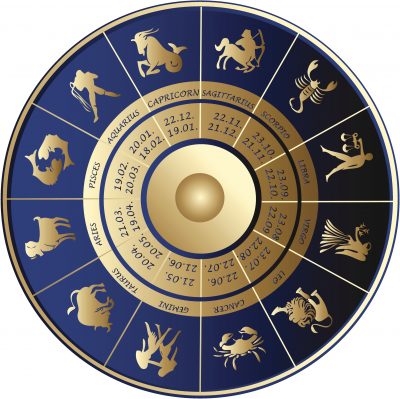By Kumar Balani
Many people are skeptical of astrologers who make predictions about future events in a person’s life. They are skeptical because they believe that astrology has no provable, scientific basis or even a link between those predictions and the relative positions of planets. How could movements of planets influence what is going to happen to people?
Such skepticism is understandable, and it is rational. A rational person would gather evidence on whether astrology has any scientific basis, or if it does not have such basis.
Until such evidence is gathered, that rational person maintains an open mind about astrology. However, not everyone is rational, and many have already closed their minds about astrology, and concluded that astrology has no basis in science, because physical evidence of the movement of planets affecting (positively or negatively) the events in one’s life has not been provided by astrology. Or has it?
The Scientific Method informs us to keep an open mind about beliefs or assertions for which we do not, or do not yet have physical proof. In short, this method shows us the way of rational thought, and instructs us how to gather evidence and arrive at certain conclusions.
On the other hand, an irrational person dismisses astrology as rubbish just because he is unaware of any scientific basis for an astrologer’s predictions of future events in the lives of people. Nor does he make an effort to discover any basis. There’s no reason why he should not make an effort.
I am neither asserting that you should believe astrology has a scientific basis, nor believe that it has no such basis. I have kept my mind open, and what I suggest to you in this opinion piece is that you also keep an open mind. And if you are intellectually curious, and want to put some effort, then look for evidence about the basis of astrology. Why is it important for us to keep an open mind, and keep searching for evidence?
Because the Scientific Method disciplines us to keep our minds open until evidence has been gathered and conclusions drawn to believe or disbelieve something. If we do, do not, or do not yet have physical proof, we stay neutral. This is a method by which we ask and answer scientific questions by making observations and doing experiments. What are the steps in the Scientific Method? Let’s review:
- Ask a Question
- Do Background Research
- Construct a Hypothesis
- Test Your Hypothesis by Doing an Experiment
- Analyze Your Data and Draw a Conclusion
- Communicate Your Results
Below I present three situations for which, initially, there was no proof, but when evidence was provided, they became known facts. I found them on www.Astrologer.com in an article by Robert Currey entitled Empirical Astrology: Why it is no longer acceptable to say astrology is rubbish on a scientific basis.
Currey describes astrology as “the study of the correlation between the positions and movements of celestial bodies and life and physical processes on Earth, and their resulting practice.”
How does astrology work? Currey writes: “Though we don’t know how it works physically, astrology is not a faith. You can experience, observe and know how it applies first hand. There are sound reasons why it has proved so difficult to test the real practice of astrology under scientific conditions and why so many tests have been flawed. However, some simple experiments have yielded results that are consistent with a scientific basis to the fundamental premise of astrology even though the practice is an art rather than a science.”
Three sample instances in which beliefs transformed into facts are presented by Currey:
- “A black swan was once considered a mythical creature and used as a metaphor for something that was ridiculous and impossible. In 1707 black swans (Latin name: Cygnus Atratus) were first discovered by Europeans in Western Australia.”
- Currey writes about meteorites, of which we have ample physical evidence: “Some fields that were once dismissed as being unworthy of study by the scientific community are now established within hard science. The belief that rocks could hit the earth from space was widely ridiculed by eminent scientists of the Enlightenment. Now the study of meteorites is an important scientific field revealing insight into the nature and history of the earth and the solar system.”
- Currey quotes the respected astronomer Carl Sagan, as writing ‘That we can now think of no mechanism for astrology is relevant but unconvincing. No mechanism was known for example, for continental drift when it was proposed by Wegener. Nevertheless we see that Wegener was right, and those who objected on the grounds of unavailable mechanism were wrong.’ So to use a lack of known mechanism to reject a demonstrable effect is to abuse science in an obstructive way, rather than use science in a constructive way.”
I mention below a phenomenon for which no physical evidence has been found based on the scientific method, but for which explanations have been presented by scientists:
Some of you may have read about an instance in which a person revealed specific physical details about another person whom he has never met before in his life, or described very intricately a place he has never been to before, or a past event (such as the circumstances of a person’s death for example) that he could not have experienced before in his life simply because he was not born yet.
Scientists have asserted in numerous instances that the only possible rational explanation for such phenomena is reincarnation: that people lived among such people in that place, in a previous life.
There is much out there in the world that we cannot (or cannot yet) prove as true or false based on science, even as various explanations have been offered. Should we accept those explanations, or simply dismiss them? Let us keep an open mind, and keep searching for more knowledge, answers, and understanding.







